The Purpose-Driven CFO Part 9: Developing Finance Business Partnering
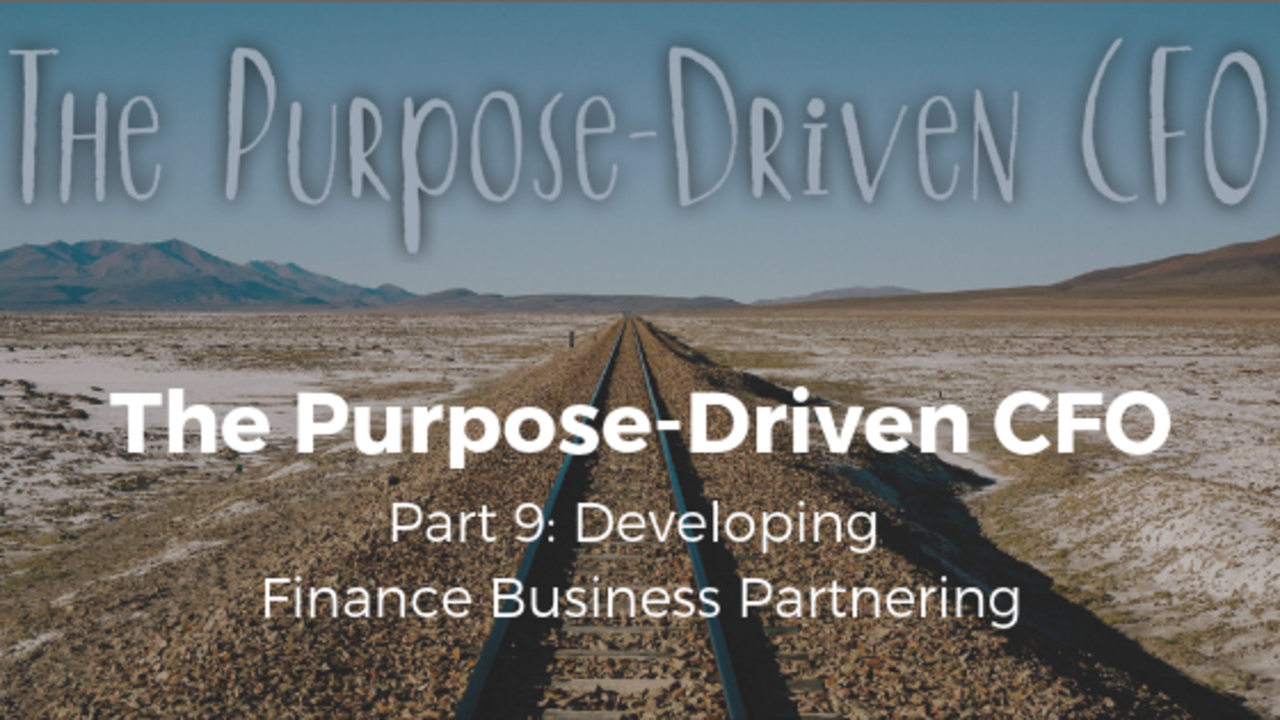
By Andy Burrows
[First published 20th July 2017]
[This article is also on LinkedIn - why not "Follow+" Andy and give the article a "like"?]
I don’t take it for granted that anyone reading this will have read the other articles in this series. Perhaps you have a particular interest in Finance Business Partnering. So, for new readers, I’ll just briefly reiterate the premise of The Purpose-Driven CFO.
That is, what I set out to do was to investigate what difference it makes going back to first principles with the things we do in Finance, and asking “why?” I know from experience that understanding why we do things can increase our motivation in doing them. Once you can see the end goal, and see the benefits of that goal, any tedious, mundane, difficult or complex steps towards it become less burdensome. And often asking “why” reveals implications that will change the way we do things. That has certainly been the case with all the other areas I’ve looked at from this angle.
So, this t...
The Purpose-Driven CFO Part 8: What is a Purpose-Driven Finance Function?
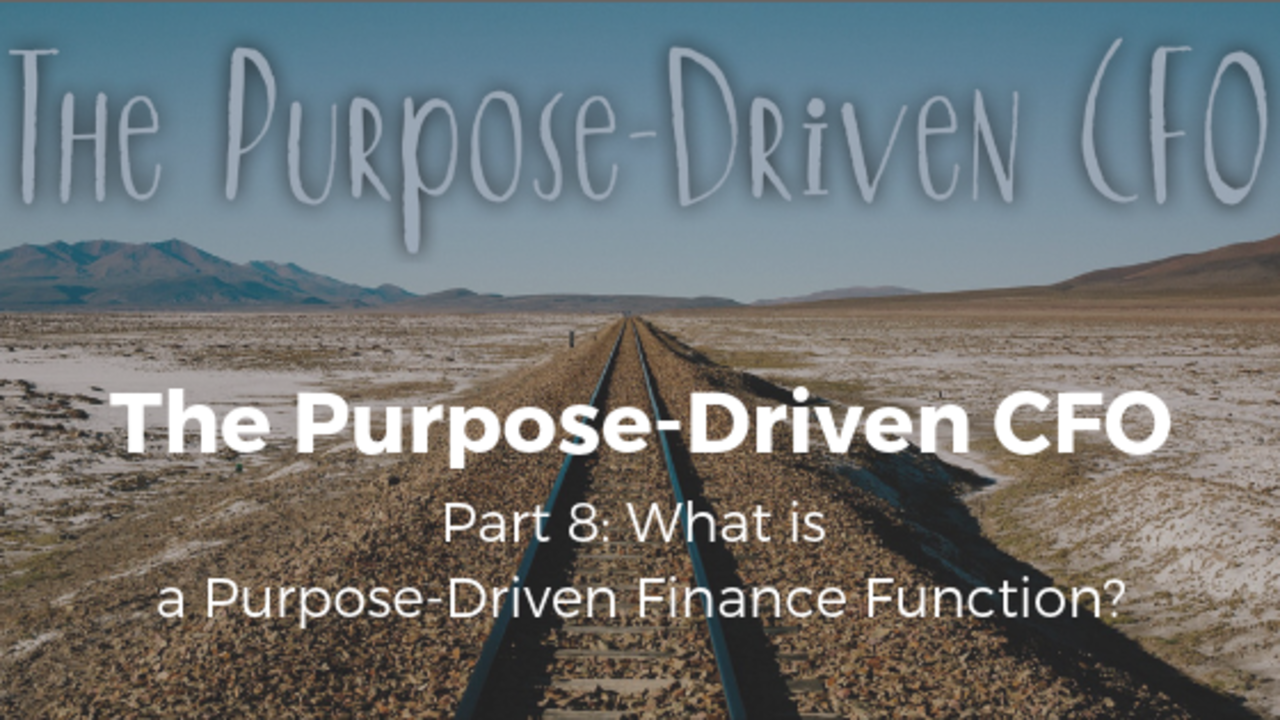
By Andy Burrows
[First published 27th June 2017]
[This article is also on LinkedIn - why not "Follow+" Andy and give the article a "like"?]
To date in this series, I’ve been picking activities that we do in the Finance function, and looking into why we do them. That’s the essence of my purpose-driven approach. We’ve worked through some big ones, like budgeting, strategy, reporting, projects and internal control (and others - the links to all previous parts in the series can be found at the end of the article).
What I’d like to do at this point in the series is to step back and take a look at the big picture. What does the Finance function exist for, if we were to sum it up? If we want to be “purpose-driven” in Finance, what does that mean? What is a purpose-driven Finance function?
Great Expectations
As a business grows, it employs Finance people in a variety of different capacities. Someone to do annual accounts filing and tax returns first of all (almost always outsourced to an...
The Purpose-Driven CFO Part 7: The Great Alternative to Analysis Paralysis
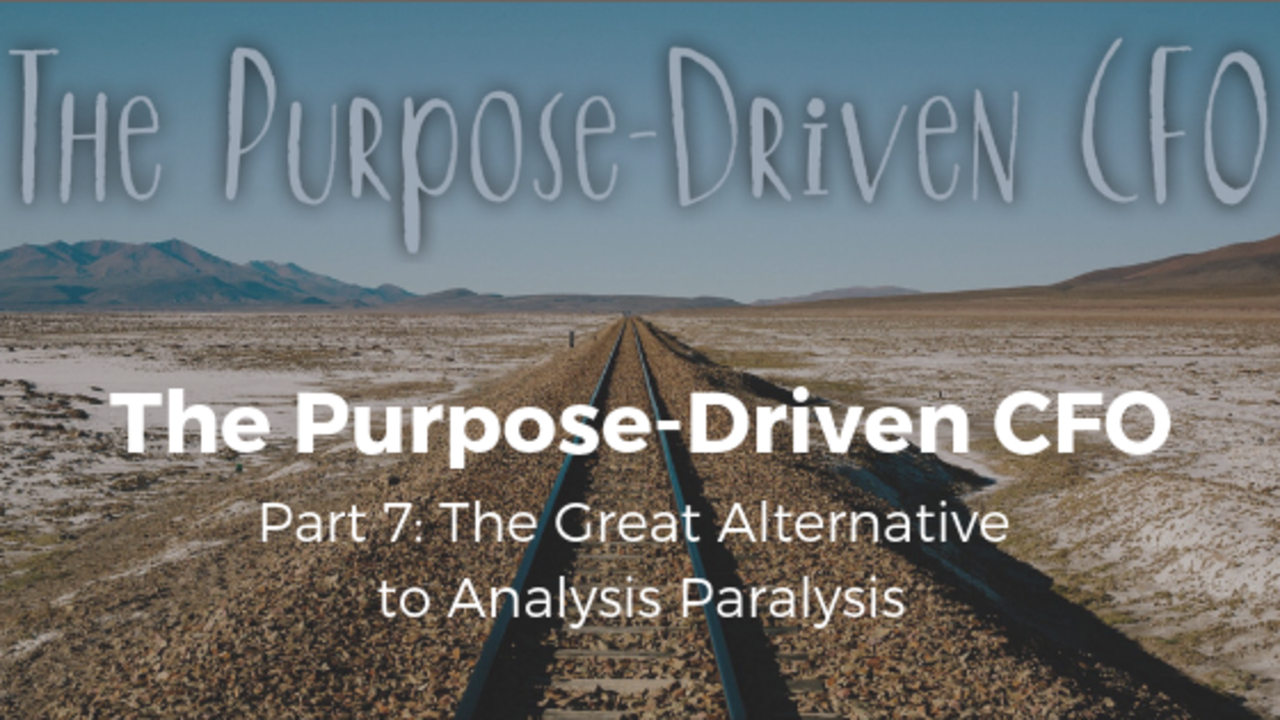
By Andy Burrows
[First published 21st April 2017]
[This article is also on LinkedIn - why not "Follow+" Andy and give the article a "like"?]
If you’ve seen the earlier articles in this series, you’ll know that I’ve been using what I’m calling a “purpose-driven” perspective to draw out useful insights into the work of the Finance function. My thesis is that being explicit about the reasons why we do things, not only boosts motivation and engagement within the team, but actually affects the way we do them. The introductory article that explains the thinking behind the approach.
So far, I’ve covered budgeting, strategy, reporting, projects and internal control.
This time round I want to take a look at why we do financial analysis.
What Do Analysts Do?
What is ‘financial analysis’? As I thought about that question as a starting point, it occurred to me that it’s difficult to define financial analysis in general terms. If I think about any of the analysis I’ve done, or my teams have...
The Purpose-Driven CFO Part 6: Internal Control is for Finance Business Partners Too
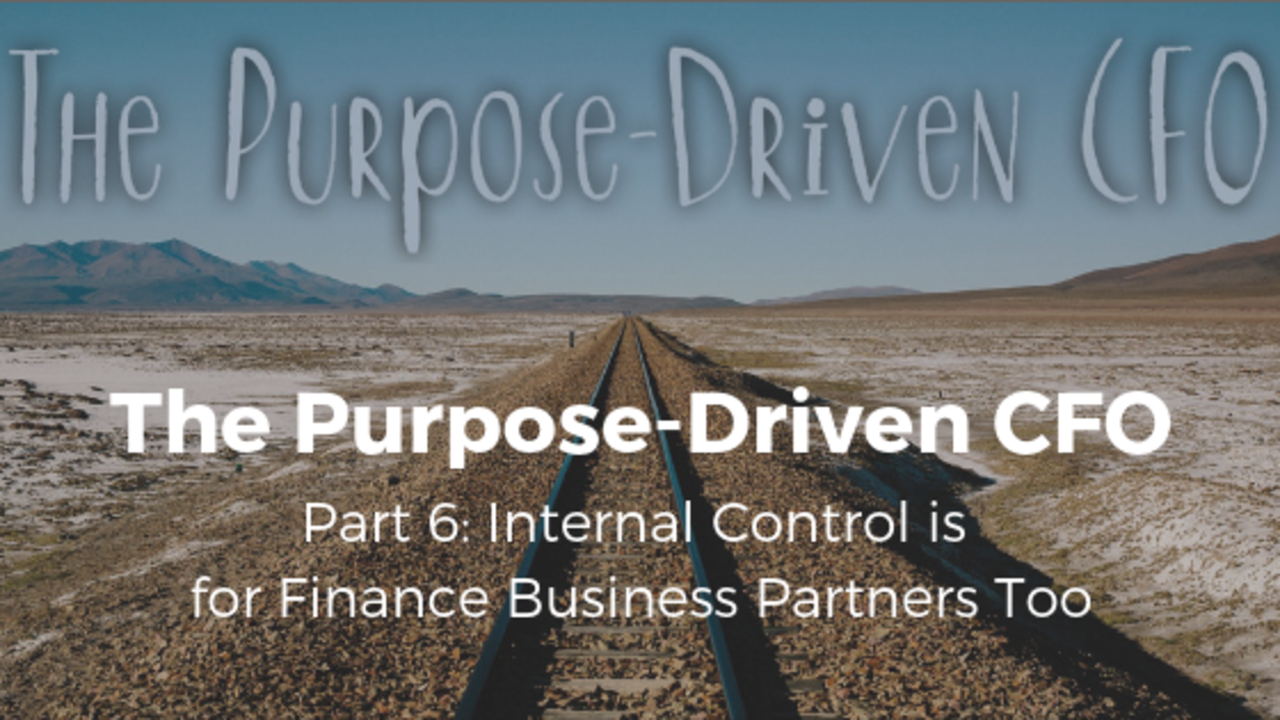
By Andy Burrows
[First published 15th April 2017]
[This article is also on LinkedIn - why not "Follow+" Andy and give the article a "like"?]
Internal control is often seen as a boring subject. It conjures up visions of bureaucracy, paperwork, inspection teams with checklists, things which slow the business down. But, as I have said elsewhere, “Saying that internal control is boring in business is like a train driver saying that tracks and signals are boring.”
Over the course of this series, I’ve been looking at activities within the remit of the CFO from what I’m calling a “purpose-driven” perspective. I’m trying to investigate whether examining, and being explicit about, the reasons why we do things, actually changes or influences the way we do them. If you haven't seen it already, please take a look at the introductory article that explains the thinking behind the approach: The Purpose-Driven CFO Part 1: Why Be Purpose-Driven. That, fittingly, tells you why I’m asking the ‘why’ q...
The Purpose-Driven CFO Part 5: Don’t Waste Money Doing Projects
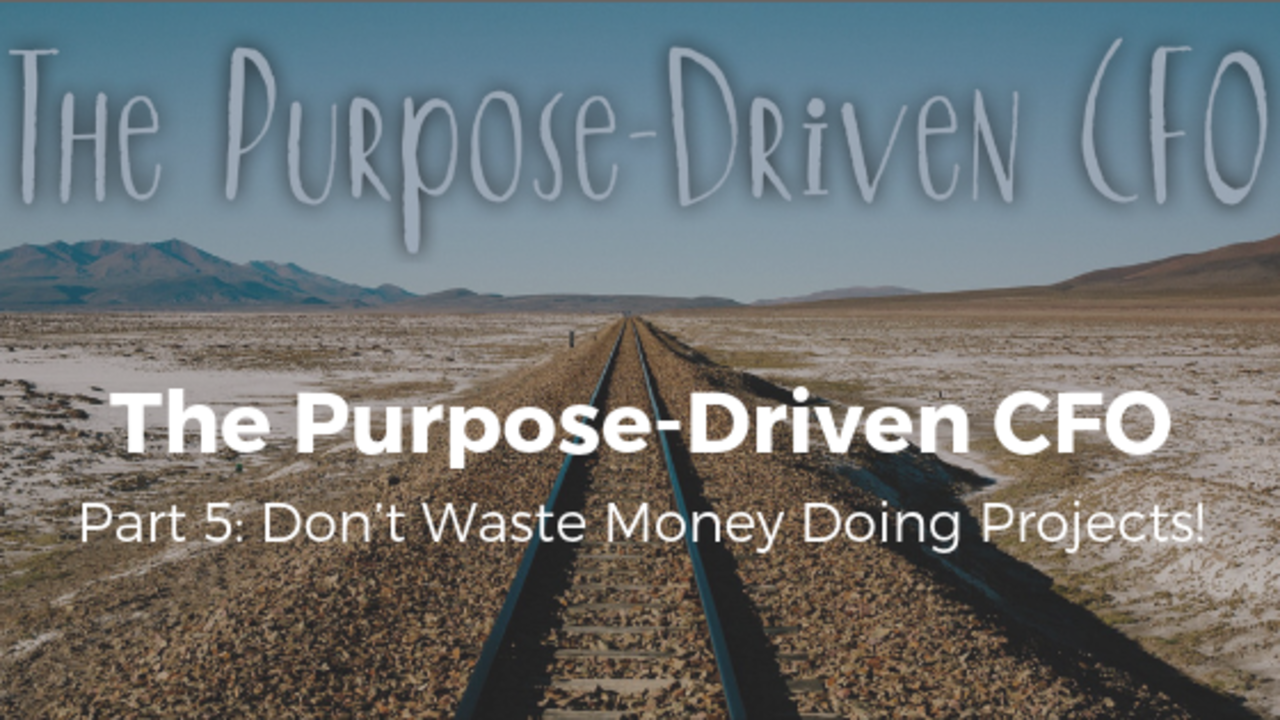
By Andy Burrow
[First published 21st March 2017]
[This article is also on LinkedIn - why not "Follow+" Andy and give the article a "like"?]
How can a purpose-driven approach help Finance managers and CFOs to prevent their businesses from wasting money on projects?
Over the course of this series, I’ve been looking at business Finance activities from what I’ve called a “purpose-driven” perspective. I have set out to investigate whether examining, and being explicit about, the reasons why we do things, actually changes or influences the way we do them. If you haven't seen it already, take a look at the introductory article that explains the thinking behind the approach: The Purpose-Driven CFO Part 1: Introduction. That, fittingly, tells you why I’m asking the ‘why’ questions!
I’ll give you the links to the other articles in the series at the end.
What is a Project For?
A project is, “an individual or collaborative enterprise that is carefully planned to achieve a particular aim.”
...There's No Such Thing as an IT Project!

By Andy Burrows
[First published 11th March 2017]
“There’s no such thing as an IT project. All projects in business are business projects.” That was a tweet I put out a while back. And it drew a response from a young programmer.
“By the same logic, there’s no such thing as a construction project either. Erecting a new office building is pure business,” he tweeted back. And the exchange continued.
So, I thought it might be good to explain what I mean when I say that there’s no such thing as an IT project.
Why Pick on IT?
Firstly, why pick on IT?
Well, in business circles over the last 50 years it has become common to think of IT and software development when talking about projects. If you say the word ‘project’ in a business setting, people will think you are talking about IT. The reasons for that are probably related to the fact that methodologies developed for running projects, such as PRINCE2, initially applied to projects involving software development or implementation. And ...
The Purpose-Driven CFO Part 4: Financial Reporting for What?
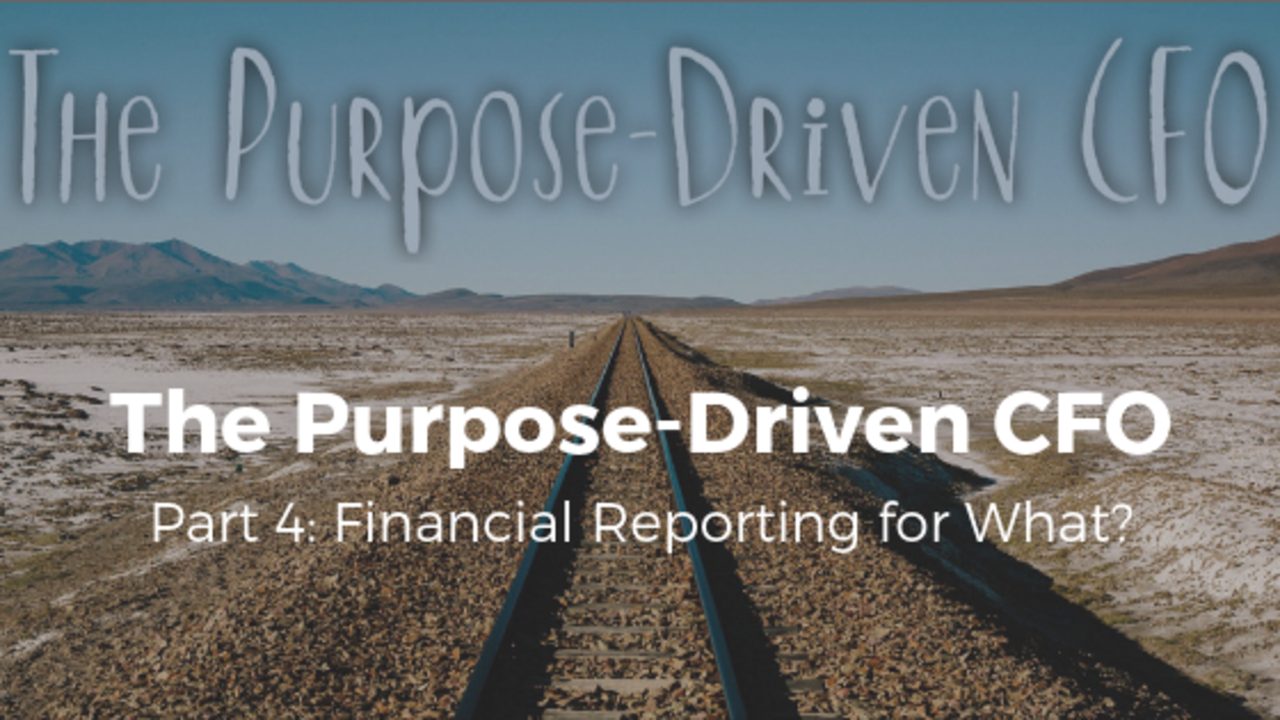
By Andy Burrows
[First published 6th March 2017]
[This article is also on LinkedIn - why not "Follow+" Andy and give the article a "like"?]
This is part of a series of articles looking at Finance activities, and basically asking 'why?' The premise is that understanding why we do things helps us to do them better. It may even fundamentally change the way that we do them. If you haven't seen it already, take a look at the introductory article that explains the approach I'm taking: The Purpose-Driven CFO Part 1: Why be Purpose-Driven?
I’ll give you the links to the other articles in the series at the end.
What Do You Mean, “Why”?
Of all the areas of activity in Finance, the one that is probably most taken for granted (aside from transactional activities such as invoicing and Accounts Payable) is Financial Reporting. I’m guessing that even asking the question, “why do we do financial reporting?”, would get quizzical looks. What do I mean, why? It’s just something we do. If we didn’t ...
You Don’t Have to be in FP&A to be a Finance Business Partner

By Andy Burrows
[First published 28th February 2017]
It is becoming fashionable nowadays to identify some roles in Finance as Finance Business Partner. It’s intended to emphasise the need for managers in the business to have a strong understanding of financial performance. And therefore, the Finance function ought to provide people who can come alongside business managers, providing financial insight and understanding.
I have been known to express my unease with the use of the term Business Partner. For one thing, it suggests that we are somehow separate from the business. We can only partner the business. So, it always seems to trigger a little internal irritation in me when I hear people say, “we’ll need to consult with the business”, or some such thing. But for another thing, it suggests that business is all about strategic decision making, and somehow the mundane things don’t matter. So only special people get to be “business partners”.
But my purpose in this article isn’t to ...
The Purpose-Driven CFO Part 3: Purpose-Driven Strategy
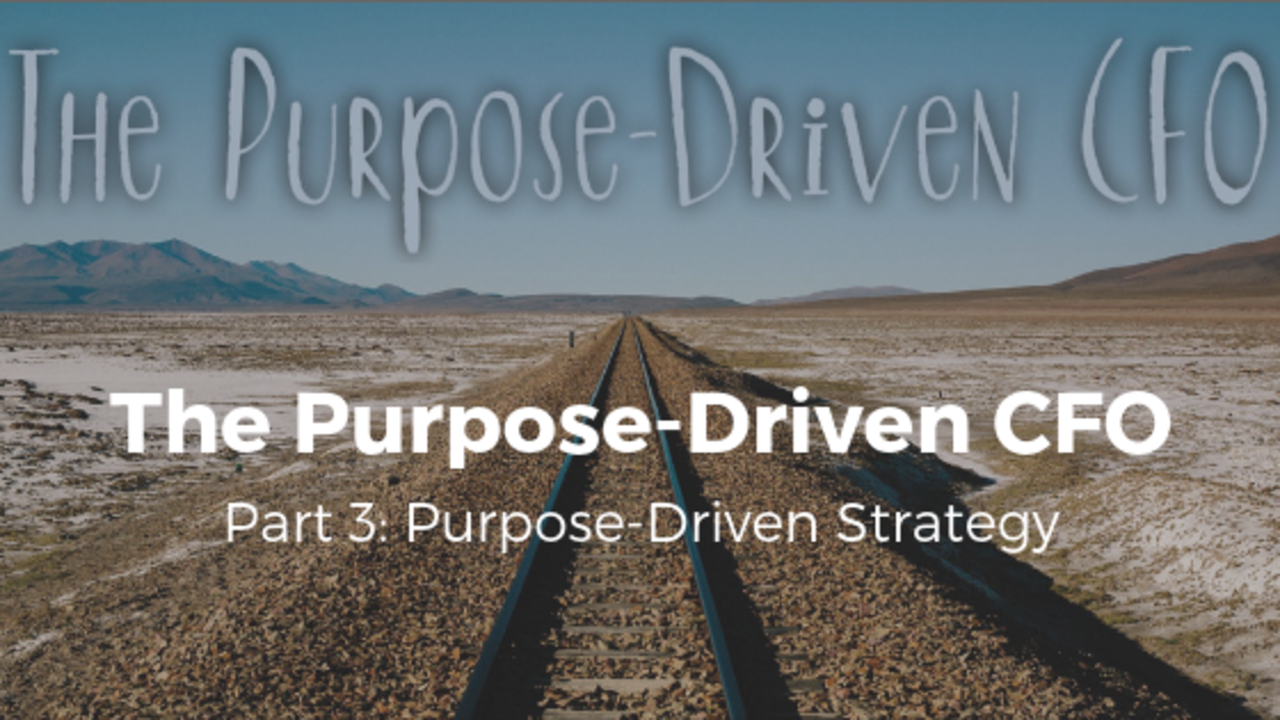
By Andy Burrows
[First published 21 February 2018]
[This article is also on LinkedIn - why not "Follow+" Andy and give the article a "like"?]
This is part of a series of articles looking at Finance activities, and basically asking 'why?' The premise is that understanding why we do things helps us to do them better. It may even fundamentally change the way that we do them. If you haven't seen it already, take a look at the introductory article that explains the approach I'm taking: The Purpose-Driven CFO Part 1: Introduction
Why Does Strategy Come Under the CFO?
I guess the first question that might spring to mind is why consideration of strategy falls into a series about Finance. To some, Finance is still the bean counting, number crunching, function. And to them, the CFO is still the chief beancounter. These people don’t see Finance as having anything to do with business strategy. They see Finance as the people who count the pennies spent and pennies received, and tell the board ...
The Purpose-Driven CFO Part 2: Is it Time to Bin the Budget?
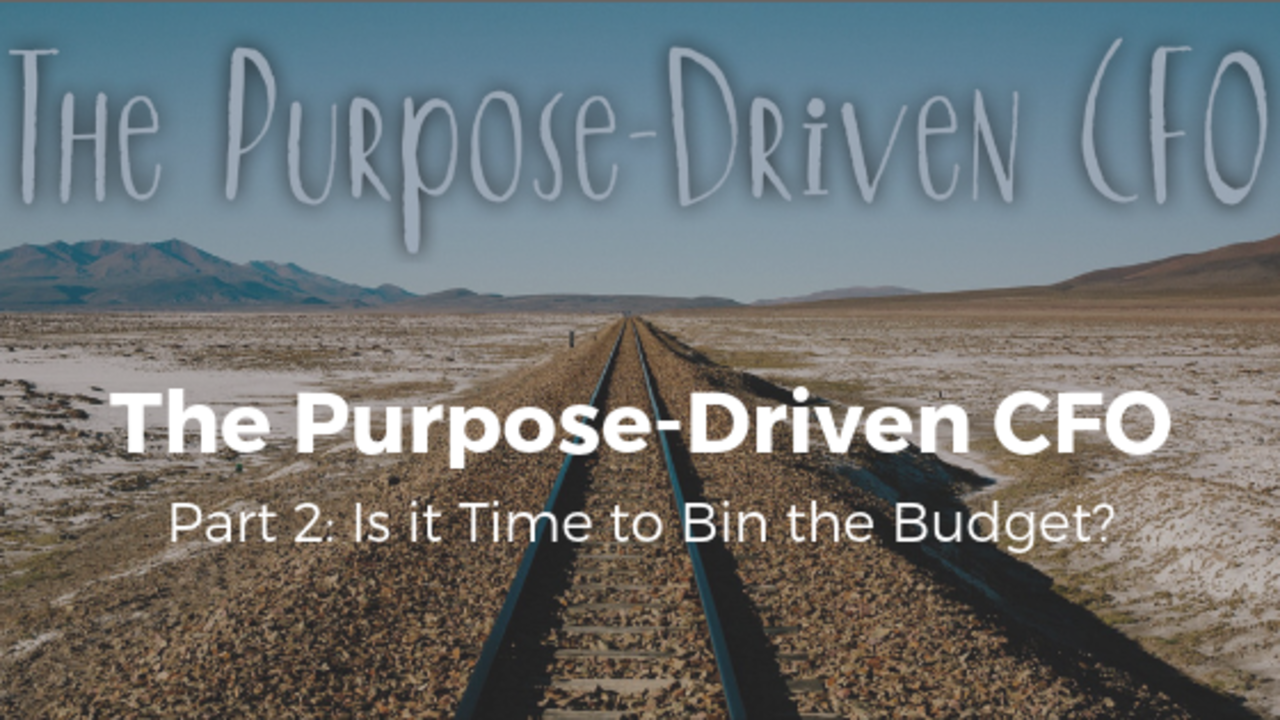
By Andy Burrows
[First published 9 February 2017]
[This article is also on LinkedIn - why not "Follow+" Andy and give the article a "like"?]
This is part of a series of articles looking at Finance activities, and basically asking 'why?' The premise is that understanding why we do things helps us to do them better. It may even fundamentally change the way that we do them. If you haven't seen it already, take a look at the introductory article that explains the approach I'm taking: The Purpose-Driven CFO Part 1: Introduction
The Budget – What’s it for?
In this second article in my series on Purpose-Driven Finance, I want to focus on one of the most widespread headaches that the CFO has to manage – the budget.
Of all the energy-sapping, life-draining, activities in Finance, the annual budget process seems to be the most hated. In almost every big business I’ve worked with, anyone involved in the annual budget process has had complaints about it. And the accountants, by the end of th...




